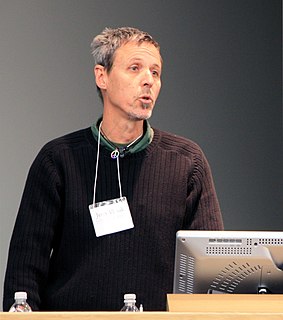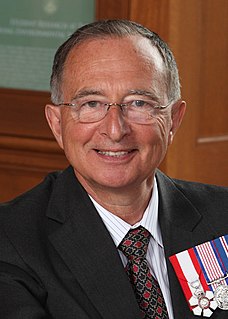A Quote by Kenzaburo Oe
If any suffering was fruitless it was the agony of a hangover; what he suffered now could not expiate suffering of any other kind.
Related Quotes
True freedom and the end of suffering is living in such a way as if you had completely chosen whatever you feel or experience at this moment. This inner alignment with Now is the end of suffering. Is suffering really necessary? Yes and no. If you had not suffered as you have, there would be no depth to you as a human being, no humility, no compassion. You would not be reading this now. Suffering cracks open the shell of ego, and then comes a point when it has served its purpose. Suffering is necessary until you realize it is unnecessary.
For the first time I noticed - as I would notice repeatedly during my ordeal, between one throe of agony and the next - that my suffering was taking place in a grand setting. I saw my suffering for what it was, finite and insignificant, and I was still. My suffering did not fit anywhere, I realized. And I could accept this. It was all right.
The suffering that food animals undergo, the suffering of those who eat them and profit by them, the suffering of starving people who could be fed with the grain that feeds these animals, and the suffering we thoughtlessly impose on the ecosystem, other creatures, and future generations are all interconnected. It is this interconnectedness of suffering, and its reverse, of love, caring, and awareness, that calls out for our understanding.
The world is full of suffering. Birth is suffering, decre- pitude is suffering, sickness and death are sufferings. To face a man of hatred is suffering, to be separated from a beloved one is suffering, to be vainly struggling to satisfy one's needs is suffering. In fact, life that is not free from desire and passion is always involved with suffering.
The Savior's suffering in Gethsemane and His agony on the cross redeem us from sin by satisfying the demands that justice has upon us. He extends mercy and pardons those who repent. The Atonement also satisfies the debt justice owes to us by healing and compensating us for any suffering we innocently endure.
There is much suffering in the world - physical, material, mental. The suffering of some can be blamed on the greed of others. The material and physical suffering is suffering from hunger, from homelessness, from all kinds of diseases. But the greatest suffering is being lonely, feeling unloved, having no one. I have come more and more to realize that it is being unwanted that is the worst disease that any human being can ever experience.
The poor, you know, have a way of solving problems...they have a tremendous capacity for suffering. And so when you build a vehicle to get something done, as we've done here in the strike and the boycott, then they continue to suffer - and maybe a little bit more - but the suffering becomes less important because they see a chance of progress; sometimes progress itself. They've been suffering all their live.s It's a question of suffering with some kind of hope now. That's better than suffering with no hope at all.
If you could read some of the stories that we had before us of parents of children dying of, let's say, bone cancer. Or people who dealt with family members drowning in their own bodies, in the end, suffering without any hope of modern medical science easing their pain or offering any comfort. With the absolute knowledge that they were going to die anyway. I can't quite comprehend how we could want those people to continue to suffer that extreme agony on the understanding that it is the will of a creator or some other philosophical concept.
Jesus lost all his glory so that we could be clothed in it. He was shut out so we could get access. He was bound, nailed, so that we could be free. He was cast out so we could approach. And Jesus took away the only kind of suffering that can really destroy you: that is being cast away from God. He took so that now all suffering that comes into your life will only make you great. A lump of coal under pressure becomes a diamond. And the suffering of a person in Christ only turns you into somebody gorgeous.





































